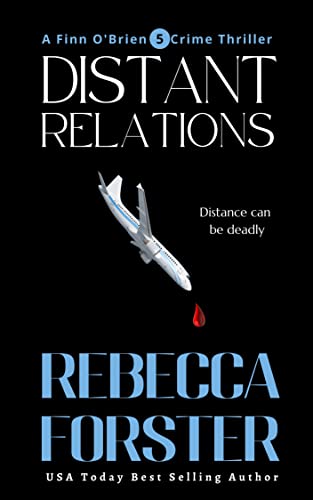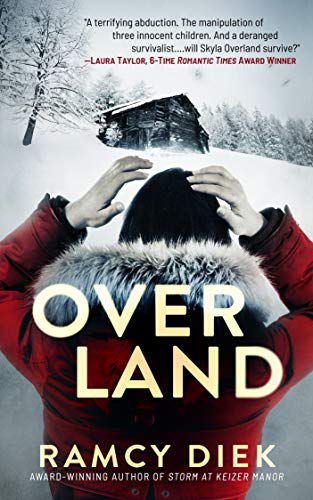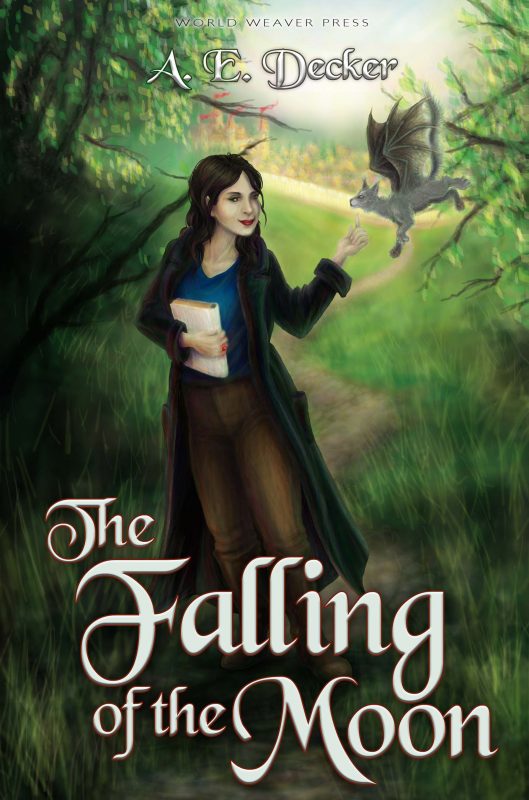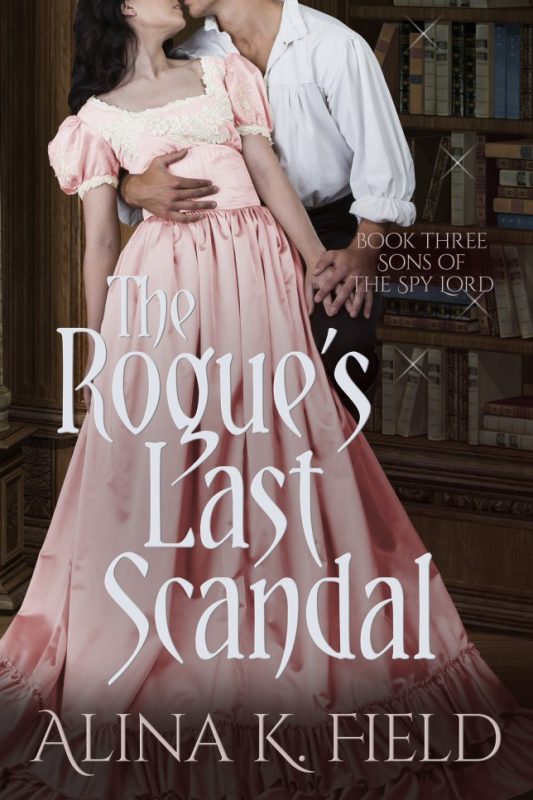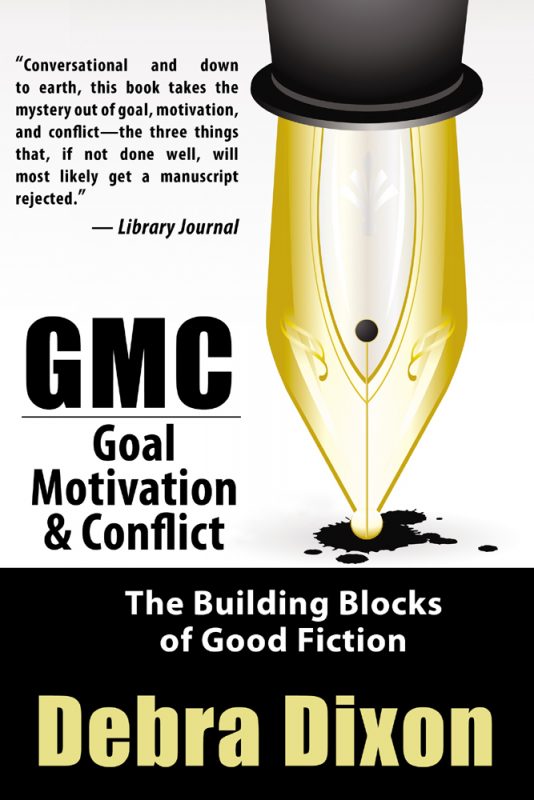Wishing for just one more day?
February 29, 2008 by A Slice of Orange in category Archives tagged as Herding Words
Haven’t we all wished for more time? This year we’re lucky, it happens to be a Leap Year and theoretically we all have one more day.
What would you do with one extra day? Would you squander it in your pajamas eating junk food watching a Mike Rowe marathon on the Discovery Channel? Would you use it at the office to catch up on filing? Or would you do something you always wanted to do but never had time for?
My friend Susanne, a leap year baby, is wildly enthusiastic about turning 10 years old today. I’ve known her for 11 years and she’s been married for 17.
Speaking of marriage, it’s also Sadie Hawkins Day — the day when it is acceptable to propose marriage according to a tradition started in 5th century Ireland. St. Bridget convinced St. Patrick to allow women to propose on this very day. If the man refused, he was fined either money or a gown. (By the way, St. Bridget proposed to St. Patrick that day; he said no).
For the majority of us, February 29th is simply an extra day we have to work. Even so, February 29th gives us one more day to dream, to laugh, and have just a little more time with the ones we love.
What are you doing with your one extra day?
A Fantasy Life – Part 6
February 29, 2008 by A Slice of Orange in category ArchivesReligion. Every society has some kind of beliefs. Those beliefs fall into two categories: monotheistic and polytheistic. When developing a world, you have to decide which way to go. When I write historicals, it is no problem. The Irish Countess was Catholic. After all she was Irish. In The Kilted Governess, they were Protestants. In Augeas, it’s still up for grabs.
After consulting my plot group, my youngest son, and my critique partner, Debra, I came up with a few ideas. The Ancient Ones and the humans would probably not have the same religion since they are different species that developed at different times. The Ancient Ones, when they die, turn into light and disappear. That came about because my sister told me I couldn’t leave Grandmother dead in the rocking chair on the porch. She had to be buried, but, geez, that’s a lot of work for one person. I didn’t like the thought of Rayna dragging Grandmother through the dirt, digging a hole and putting her in. It all seemed rather undignified. So, I had her turn to light and poof, no body to bury. It’s amazing what one can set up by accident.
If the Ancient Ones turn into light, then they must want to reach the light at the end of their journey through life. So they have a philosophy more than a religion. They follow the Path of Enlightenment and at the end, they join the light and become whole with those who went before them.
As with any religion or philosophy, there has to be the evil side. (My son threatened me if I said the Dark Side.) There is always good vs. evil. So what happens if they fall from the Path of Enlightenment? There has to be a penalty. They don’t get to join the light. Then someone has to bury them. Hopefully someone strong enough so they won’t be dragged through the dirt.
The humans? I still don’t know what they believe in. They have a polytheistic religion, but no one is on a religious quest at the moment, so I have more time to figure it out.
Above is a picture of Andra from the second set of Augeas stories arriving in April.
Art work by Jasmine Tanner – http://veildandy.deviantart.com
What Inspires You
February 26, 2008 by A Slice of Orange in category Archives tagged as What Inspires YouLife Lessons Are Ever Present
by Lori Pyne
As we walked across the parking lot towards the playing field, I warned my son to stay on the playground while his father and I joined the other parents to prepare the baseball fields for the coming season. With a quick agreement, he dashed towards the basketball court.
As I passed the group of boys my son had joined, I heard one of the boys say, “He’s in special ed.” The four small boys stepped away from my son. Rage filled my body. I stopped and stared at the tormentors. How could those brats be unkind to my sweet child? Having suffered at the hand of many school yard bullies, I was ready to battle for my son.
My son then tossed his miniature basketball towards the hoop. It missed and he chased after it. The boys stood and watched my son have a blast trying to make a basket. The older boys playing on the other court swept close and my son raced after them.
As my son did not seem concerned with the smaller boys’ refusal to play, I continued to slowly walk towards my husband. I quickly relayed the overheard comment to my husband.
My husband watched our son dash over to the slides and then turned his attention to the basketball court. Although he had been at the school for a number of lunch supervisory hours, my husband did not recognized the small boys either.
For the next hour I shifted my attention from the job at hand, keeping an eye on my son and watching the small boys. I was determined to talk to their parents. Despite my best efforts, the boys left before I identified their parents.
As I left the playground with a slow simmer cooking my temper, my son’s happiness penetrated my anger. My son had not allow the boys’ behavior ruin his enjoyment. Although I would have still liked to talk to their parents, I could control my reaction to other’s behavior.
Life lesson are everywhere. Some are gentle and quiet; and some are loud and hard to miss. The trick is to be willing to listen.
______________________________________________________________
Lori Pyne is a member of OCC, and a multi-tasking volunteer. She is currently serving as one of our Online Class Moderators, Guest Reception Coordinator and Coordinator for the Book Buyers’ Best Contest for published authors. She is married with one son, and works full time for an entertainment law firm.
e-maginings: Picture This
February 23, 2008 by A Slice of Orange in category Archives tagged as blogging, stock photosI’m currently taking Suzanne McMinn’s online class Color Me Blogging, sponsored by OCC RWA. It’s a great class and we’re all learning a lot.
One of the things we discussed is putting graphics in blogs and whether readers like them or not. The only downside I can see if for people with slow modem connections as the graphics take longer to download than plain text. I spend part of the week at a location with a modem connection and I basically turn off “download images” just to speed up my internet experience. It’s not as much fun, though.
One thing you can do to make the pictures download faster is to resize them to a smaller size, say 200-300 pixels high. I use Paint Shop Pro to do that.
If you don’t have a personal picture to illustrate your blog, there are online stock photo sites where you can pick up pictures relatively inexpensively, if not free. My favorites are:
http://www.bigstockphoto.com/
http://www.dreamstime.com/
http://www.istockphoto.com/index.php
You can register for free at all of them, but you have to buy download credits to purchase the photos. The cost of the credits ranges from $1.00 to app. $2.50. The cost of the photos generally varies by size, with the smallest costing one credit and larger ones running At iStock photo, there’s always a free image of the week, plus their dollar bin section where every picture costs one credit. Dreamstime.com has a large section of free graphics. The picture in this post is a free graphic I downloaded from dreamstime.com because I loved it, but didn’t know what to do with it, so I’m sharing it here.
So, what do you think? Do you like photos with your blog entries or not? If so, small or large graphics?
Advice to Myself as a Newbie Author
February 22, 2008 by A Slice of Orange in category Archives tagged as Advice to Myself as a Newbie Author, Debra Mullinsby Shauna Roberts
http://ShaunaRoberts.blogspot.com
Today’s Guest: Debra Mullins
Debra Mullins is the author of ten historical romances from Avon Books, including her new release, The Night Before the Wedding, which involves a Scottish curse. For excerpts, check out her Website at http://www.debramullins.com or friend her at http://www.myspace.com/debramullins.
Debra, if you could travel back in time to before you were first published, what advice would you give yourself?
 Ever wish you could turn back the clock? Do the whole “If I knew then what I know now†deal? Some people wish they could go back to high school with the body of an 18-year-old and the knowledge of a woman twice that age. Me, I sometimes wish I could go back to the days before I got published.
Ever wish you could turn back the clock? Do the whole “If I knew then what I know now†deal? Some people wish they could go back to high school with the body of an 18-year-old and the knowledge of a woman twice that age. Me, I sometimes wish I could go back to the days before I got published.
What’s that? I want to turn in my secret handshake? Not at all, dear readers. But there are things I had as a writer struggling to get her work in front of an editor that I don’t have now that I have published ten books. Enthusiasm. Opportunities. Time!
Enthusiasm. Whoever said ignorance is bliss had to be talking about the unpublished writer. Before I got published, all I could see in front of me was that golden finish line—publication. I did the networking. I did the conferences. I did the critique group thing. I spent every minute I could between kids and husband and household chores, working on my latest opus. I wasn’t writing for the market. I wasn’t worried about the cover conference or if the editor would like my hero’s name. I didn’t worry about whether my heroine kicked butt. I was writing the story that burned inside me, the one that demanded to be told. I could feel the power of it coursing through my veins. I just wrote what I saw in my head. Joyfully. Enthusiastically. Passionately.
 1. It’s easy to lose sight of that joy once you get published. So the first piece of advice I would give myself is to hang on to that passion, that zeal, with both hands. It’s what brings your work to life. And it’s darned hard to get back once it’s managed to slip away from you.
1. It’s easy to lose sight of that joy once you get published. So the first piece of advice I would give myself is to hang on to that passion, that zeal, with both hands. It’s what brings your work to life. And it’s darned hard to get back once it’s managed to slip away from you.
2. The second piece of advice I would give myself is to prepare for the changes publication will bring. It’s a whole new world. The opportunities I was used to are no longer there. For instance, I can’t enter most chapter contests, even in a completely different genre in which I am not published, which means I can’t get that great anonymous critique of my work for just $25. I have to find different ways of getting feedback, and most of them will not result in my work getting in front of an editor as a finalist. Also, time becomes an issue. I have to make time to write the book, to do revisions, to handle copyedits, to go through page proofs. I have to find time for promotion and Website updates and judging contests. Somewhere in there I have to find time to be inspired again, to do things outside of writing to feed my muse, so the train of success can keep on rolling down the tracks.
Publication does change your life as a writer. Be prepared for that. Have a plan.
Every time I sit down in front of that blank page, I worry about a hundred things I never did before. The editor, the marketing, the cover conference—and does my heroine really, really kick butt?
3. So the last piece of advice I would give to myself, then and now, is to believe in your talent. Trust that when you reach for it, the writing will be there. Then close your eyes and jump into your story. Enjoy the ride.
✥✥✥✥✥
Visit Debra Mullins’ Website at http://www.debramullins.com. Her book The Night Before the Wedding is available at all major bookstores and can be ordered online from Amazon.com and Barnes & Noble.
Affiliate Links
A Slice of Orange is an affiliate with some of the booksellers listed on this website, including Barnes & Nobel, Books A Million, iBooks, Kobo, and Smashwords. This means A Slice of Orange may earn a small advertising fee from sales made through the links used on this website. There are reminders of these affiliate links on the pages for individual books.
Search A Slice of Orange
Find a Column
Archives
Featured Books
DISTANT RELATIONS
Finn's life is in the hands of a distant and deadly relation.
More info →THE FALLING OF THE MOON
In the gloomy mountains of Shadowvale, Ascot Abberdorf is expected to marry a somber Count and settle down to a quiet life terrorizing the villagers.
More info →
GMC: GOAL MOTIVATION & CONFLICT
This book belongs on every fiction writer's bookshelf.
More info →Newsletter
Contributing Authors
Search A Slice of Orange
Find a Column
Archives
Authors in the Bookstore
- A. E. Decker
- A. J. Scudiere
- A.J. Sidransky
- Abby Collette
- Alanna Lucus
- Albert Marrin
- Alice Duncan
- Alina K. Field
- Alison Green Myers
- Andi Lawrencovna
- Andrew C Raiford
- Angela Pryce
- Aviva Vaughn
- Barbara Ankrum
- Bethlehem Writers Group, LLC
- Carol L. Wright
- Celeste Barclay
- Christina Alexandra
- Christopher D. Ochs
- Claire Davon
- Claire Naden
- Courtnee Turner Hoyle
- Courtney Annicchiarico
- D. Lieber
- Daniel V. Meier Jr.
- Debra Dixon
- Debra H. Goldstein
- Debra Holland
- Dee Ann Palmer
- Denise M. Colby
- Diane Benefiel
- Diane Sismour
- Dianna Sinovic
- DT Krippene
- E.B. Dawson
- Emilie Dallaire
- Emily Brightwell
- Emily PW Murphy
- Fae Rowen
- Faith L. Justice
- Frances Amati
- Geralyn Corcillo
- Glynnis Campbell
- Greg Jolley
- H. O. Charles
- Jaclyn Roché
- Jacqueline Diamond
- Janet Lynn and Will Zeilinger
- Jaya Mehta
- Jeff Baird
- Jenna Barwin
- Jenne Kern
- Jennifer D. Bokal
- Jennifer Lyon
- Jerome W. McFadden
- Jill Piscitello
- Jina Bacarr
- Jo A. Hiestand
- Jodi Bogert
- Jolina Petersheim
- Jonathan Maberry
- Joy Allyson
- Judy Duarte
- Justin Murphy
- Justine Davis
- Kat Martin
- Kidd Wadsworth
- Kitty Bucholtz
- Kristy Tate
- Larry Deibert
- Larry Hamilton
- Laura Drake
- Laurie Stevens
- Leslie Knowles
- Li-Ying Lundquist
- Linda Carroll-Bradd
- Linda Lappin
- Linda McLaughlin
- Linda O. Johnston
- Lisa Preston
- Lolo Paige
- Loran Holt
- Lynette M. Burrows
- Lyssa Kay Adams
- Madeline Ash
- Margarita Engle
- Marguerite Quantaine
- Marianne H. Donley
- Mary Castillo
- Maureen Klovers
- Megan Haskell
- Melanie Waterbury
- Melisa Rivero
- Melissa Chambers
- Melodie Winawer
- Meriam Wilhelm
- Mikel J. Wilson
- Mindy Neff
- Monica McCabe
- Nancy Brashear
- Neetu Malik
- Nikki Prince
- Once Upon Anthologies
- Paula Gail Benson
- Penny Reid
- Peter Barbour
- Priscilla Oliveras
- R. H. Kohno
- Rachel Hailey
- Ralph Hieb
- Ramcy Diek
- Ransom Stephens
- Rebecca Forster
- Renae Wrich
- Roxy Matthews
- Ryder Hunte Clancy
- Sally Paradysz
- Sheila Colón-Bagley
- Simone de Muñoz
- Sophie Barnes
- Susan Kaye Quinn
- Susan Lynn Meyer
- Susan Squires
- T. D. Fox
- Tara C. Allred
- Tara Lain
- Tari Lynn Jewett
- Terri Osburn
- Tracy Reed
- Vera Jane Cook
- Vicki Crum
- Writing Something Romantic
Affiliate Links
A Slice of Orange is an affiliate with some of the booksellers listed on this website, including Barnes & Nobel, Books A Million, iBooks, Kobo, and Smashwords. This means A Slice of Orange may earn a small advertising fee from sales made through the links used on this website. There are reminders of these affiliate links on the pages for individual books.


